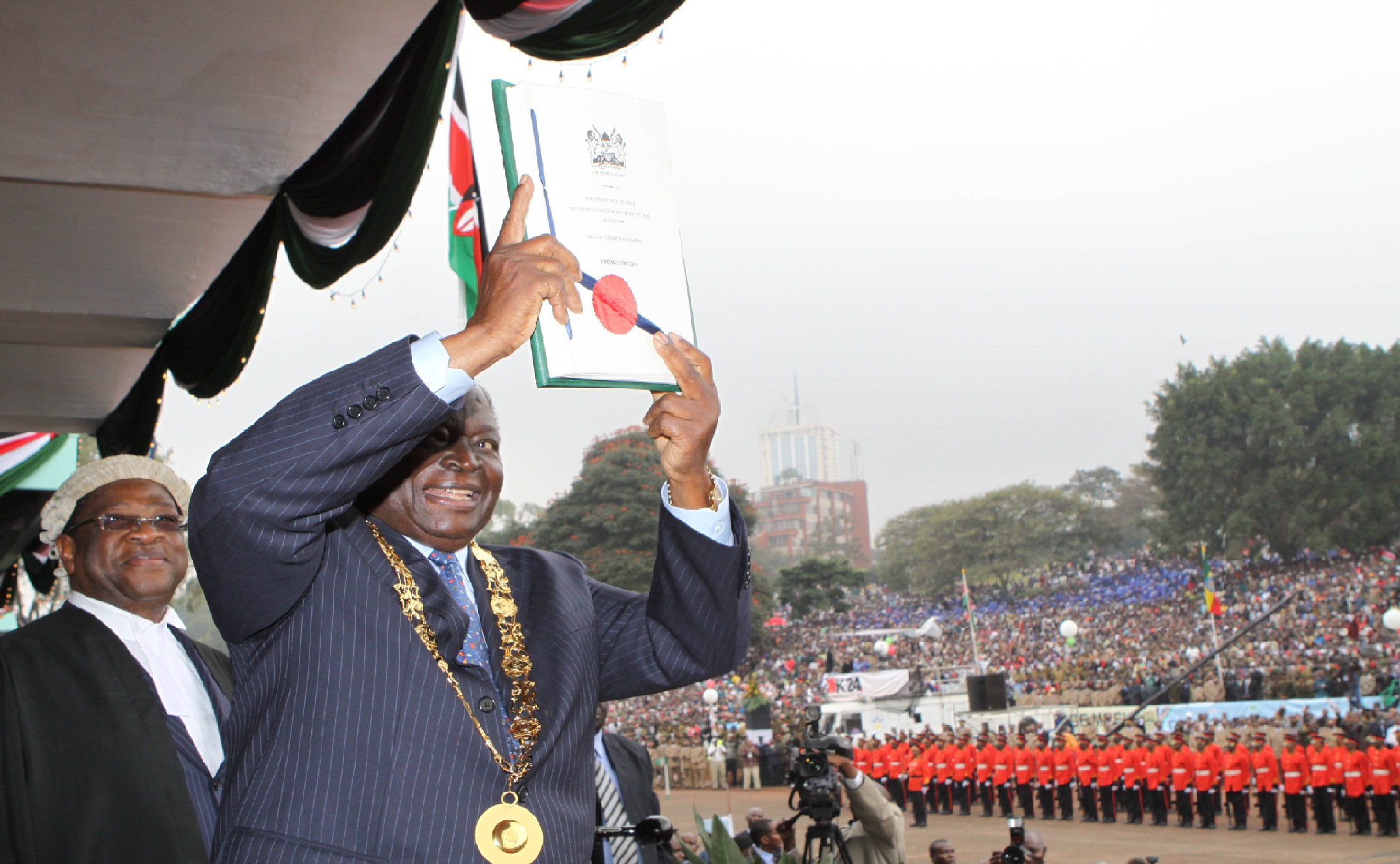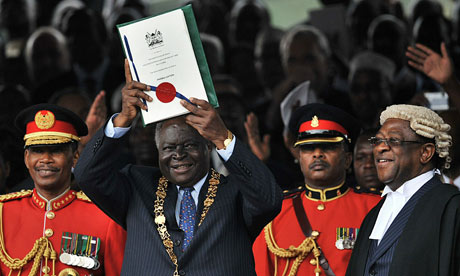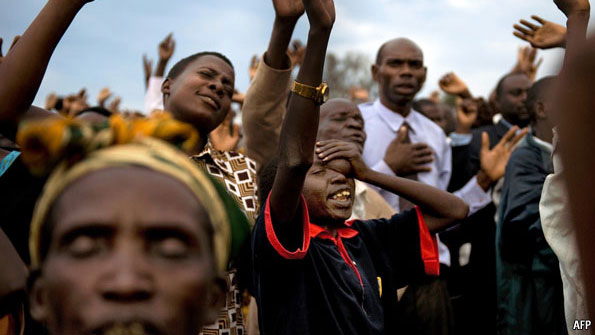A bold move forward
Kenya’s new constitution
proves skeptics wrong

A bold move forward
Kenya’s new constitution
proves skeptics wrong
At a time when anti-establishment sentiments are high in the United States, many Americans are searching for answers in their constitution, in an effort to turn back the clock to the way things once were. More than 7,000 miles away in Kenya, the mood has been markedly different in the past couple of months. There, they’re rewriting the constitution with an eye towards the future.

Considered to be a huge leap forward from what was left by colonial powers, more than 45 years ago, Kenyans have finally approved their own constitution, after riding a wave of reform. Kenya’s lawmakers finished drafting the new law in April, for a “yes” or “no” referendum vote on Aug. 4.
Most of the key changes proposed in the new constitution focus on the main branches of power: the executive, legislative and judiciary. The changes are concerned with devolving power to the greater mass of citizens, instead of the few holding power at any given time. Africa’s image around the world is largely seen through the lens of problems such as poverty, corruption, illiteracy and tribalism. For decades, the perception and the underlying reality of these problems, has weighed down the continent’s growth.
Before the vote, the new law grabbed the attention of conservative Christian groups in the U.S. In fact, it was reported by major newspapers such as the New York Times that before Kenyans had even finished rewriting the draft of the new constitution, Christian groups organized petition drives in Kenya against it, objecting to two major provisions regarded as threats to Christianity. The first provision will recognize the Islamic courts in handling nuptials and land disputes relating only to Muslims. The second provision strongly opposed by Christians will legalize abortion if the life of the mother is in danger. It is also important to keep in mind that Christian fundamentalism is a strong bloc in Africa. According to a report by the Economist, 17 million Africans described themselves as born-again Christians in 1970, whereas today, the number has risen to more than 400 million, according to the World Christian Encyclopedia.

Kenya, a place where money has purchased influence and power for decades, was not immune to this flow of funds in the name of religion, to support the interest of a small group. A brutal by-product of this battle for votes occurred in June, when someone detonated three grenades in a crowd of people, who had gathered for worship, rallying for a “no” vote at Uhuru Park. Speculations followed the bombing, accusing governmental and other groups, who supported the new law. But this scar didn’t halt the process. In fact, amid all the chaos and fear, polls still showed that 60 percent of Kenyans supported the new constitution before the vote.
Despite these birthing pains earlier this month, a peaceful plebiscite was held and 69 percent of Kenyans backed the new constitution.
The whole world has been following Kenya’s progress towards democratization, including African totalitarian leaders. As the wave and fever for local, regional and national elections takes over Africa, elections have proven to be poor indicators of democracy and civil liberties. In this domino effect of the democratization process of Africa, dictators resisting democracy have used Kenya’s 2007 election as a cautionary tale of why they refuse to hold elections in their own countries. The aftermath of the last national election in Kenya claimed 1,300 lives during ethnically fueled clashes.
Many parts of Africa are now looking to the process as a glimmering example of peaceful democracy. The manner in which the successful referendum has been conducted, proved skeptics wrong. Nonetheless, the main challenge lies on the implementation of the new constitution for Kenya’s bright future. After all, thoughts put on paper don’t have rights, people do.
This article was originally published on East Africa in Focus.










